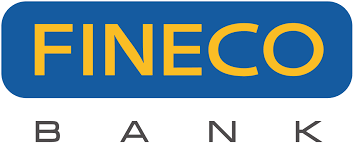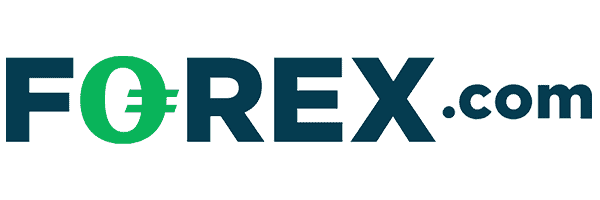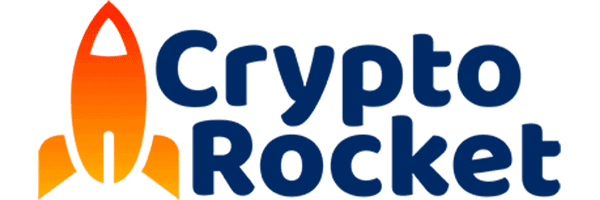Best CFD Brokers Compared For 2026
A Contract for difference (CFD) asset is a financial derivative instrument that allows trading of financial instruments by speculating on the price movements without actually owning the underlying asset.
An investor buys or sells units of the given asset, and intends to profit based on the price movement. The contract is usually between a trader and a broker and it is an agreement to pay out on the difference in the buy and sell prices.
In this guide, we review at the leading online CFD brokers and look at their minimum deposit requirements, ease of account registration, and trading tools availed as well as their pros and cons.
The Top CFD Brokers Available Right Now
In a rush? If you don’t have time to read our full guide, here’s a quick look at the best CFD brokers.
- Fineco Bank – 100 free trades
- Forex.com – Respected forex CFD broker
- Trade Nation – CFD broker with risk management tools
- Plus500 – Excellent CFD trading app
- CryptoRocket – High leverage CFD broker
- AvaTrade – CFD broker with MT4/5
-
-
Note: CFDs give traders the ability to amplify their gains by taking advantage of the leverage provided. However, it is worthy noting that leverage is a double-edged sword, allowing you to earn above-average gains while at the same time could end up blowing your trading account.
Criteria for Choosing Providers
- Minimum deposit required
- Is the CFD broker regulated
- Quality of customer support
- CFD broker’s trading costs
- Other customer reviews
- Number of CFD assets traded on the platform
- Types and number of trading platforms supported
Best CFD Trading Providers 2026
There are several brokers across the world that offers CFDs. These brokers offer several asset classes and different financial instruments. They also provide traders with numerous trading and market analysis tools via the broker websites and trading platforms. Find below our Best 5 CFD brokers for 2021.
1. Fineco Bank - Trade Stock CFDs with No Commission
Fineco Bank is another top option for CFD traders. What sets Fineco Bank apart is that the broker allows you to trade stock CFDs with no minimum deposit, no commission, and no added spread. So, if you’re just getting started with CFD trading, this is a great place to start.
Fineco Bank offers a huge selection of more than 10,000 shares from the US, UK, and Europe. You can also trade stock indices, forex, and futures for gold and crude oil – although these do carry added spreads starting at 0.4 pips for index trading and 0.8 pips for forex trading.
Another thing we like about Fineco Bank is its desktop trading platform, PowerDesk. This platform offers a real-time look at the market and comes with dozens of customizable technical indicators built in. Fineco Bank also has a news feed, economic calendar, and global stock screener to help you find new trading ideas.
The only downside to Fineco Bank is its mobile trading app, which isn’t nearly as comprehensive as PowerDesk. You can trade on the go, but you’ll only find limited features for technical analysis on your smartphone.
Fineco Bank has racked up more than 1 million users across Italy and the UK since launching in 1999. It is regulated by the Bank of Italy and is traded on the Milan Stock Exchange, so it’s widely considered to be a safe partner for trading.
You can join Fineco today by clicking the button below and use the code FIN100-AD to get 100 free trades!
Our Rating
- Over 10,000 stocks from the US and Europe
- No minimum deposit required
- Comprehensive desktop trading platform
- 100 free trades
- Relatively basic mobile trading app
Your capital is at risk2. Forex.com
Forex.com remains one of the largest and most popular CFD and online trading platform. It has its headquarters in the United States but maintains operations in 180+ countries across the world.
Forex.com is the online trading name of GAIN Capital – a publicly-traded company listed on the New York Stock Exchange (NYSE). The broker is on the other hand registered with and regulated by several top tier agencies across the world including the FCA in UK, CySEC in Cyprus, and Australia’s ASIC.
Tradable CFD availed on the Forex.com website include:
- Shares and stock CFDs
- Commodity CFDs
- Forex CFDs
- Indices CFDs
Forex.com operates three trading accounts – Standard, Commission, and the Direct Market Access (DMA) account. The Standard trader account is available on both the MT4 and MT5 trader platforms. The Commission and DMA accounts on the other hand are only available on Forex.com’s proprietary trading platform. You will need a minimum $25,000 to open the DMA account plus you must also maintain a monthly trading minimum of $100,000.
Our rating
- Get to enjoy leverages of up to 1:50 on all trades
- Trade on both the broker’s proprietary trading platform as well as the all-popular MT4 and MT5 trading platforms
- Highly responsive customer support available via phone, email and on social media
- One may consider their product portfolio limited
- Maintains higher stock CFD charges
3. Trade Nation - CFD Broker with Excellent Risk Management Tools
Trade Nation is a global CFD broker founded in 2014. The platform offers hundreds of markets, including over 1,000 share CFDs, 30 currency pairs, 16 stock indices, and more. Notably, Trade Nation does not allow trading on cryptocurrencies at this time.
One of the things we love about Trade Nation is that it uses fixed rather than variable spreads. So, you know exactly how much a trade will cost you ahead of time. Spreads start at just 0.6 pips for forex trading and 0.8 pips for index trading, so Trade Nation's pricing is very competitive. The brokerage also doesn't have deposit, withdrawal, or inactivity fees.
Trade Nation has its own, custom-built trading platform for web and mobile to help you navigate the market. The platform includes a technical charting interface with dozens of studies and drawing tools, plus a news feed and forex trading signals. Even better, Trade Nation's platform gives you advanced risk management tools. You can hedge your trades in a few clicks or use trailing stops to limit your potential downside.
Trade Nation is regulated by the UK FCA, the Australian Securities and Investment Commission (ASIC), and the South African Financial Services Conduct Authority (FSCA). There's no minimum deposit required to open a trading account.
Our Rating
- Trade over 1,000 global share CFDs
- No minimum deposit required
- Hedge your trades and place trailing stop losses
- Competitive fixed spreads
- No cryptocurrency trading
Your capital is at risk4. Plus 500
Founded in 2008 with regional offices in UK, Cyprus, Australia, and Singapore, Plus500 has become a global broker. Plus500 is publicly traded on the London Stock Exchange (LSE) and it is also part of the UK FTSE 250 index. Plus500UK Ltd is authorized & regulated by the FCA in the UK, CySEC in Cyprus, ASIC in Australia and MAS in Singapore. The broker provides its services to residents of over 50 countries. Some of the CFDs available are:
- Indices like UK 100, IBX, ATX, WIG20, and SPI200.
- Commodities like gold, silver, sugar, and natural gas.
- Cryptocurrencies such as Bitcoin, Ethereum, Litecoin, and Monero.
- Shares like Paypal, Tesla, Coca-cola, Nestle, Intel, etc. ETFs like SPY, QQQ, GDX, FAZ, XME, etc.
Only two account types are available on Plus500; the standard and professional accounts. To open an account, fill the online form, upload your verification documents, make a deposit (minimum of $100), and choose a CFD to trade. The Plus500 trading platform is user friendly and web-based. It also has a windows version and mobile version. The platform provides traders with live quotes of CFDs, charts and tools for analysis, and risk management.
Trades can conveniently be opened, managed, and closed at will. Plus500 does not charge commissions. However, it is worth noting that inactivity and overnight fees are applicable. Maximum leverage of 1:30 is offered to retail traders from the ESMA region.
OUR RATING
- Plus500 offers multiple CFDs for trading across different asset classes.
- It is a regulated broker that has been in operation for over a decade.
- The broker offers very tight spreads and charges no commissions at all.
- Plus500 services are restricted for traders from several countries.
- The broker does not provide trader education courses.
- CFD trading is not for beginners
CFDs are complex financial instruments and 80.5% of retail investor accounts lose money when trading CFDs.5. Cryptorocket
Cryptorocket sets itself apart from other CFD brokerages available today because it is blockchain-based. It also presents you with one the highest trading leverages of up to 1:500. The cryptocurrency based exchange also embraces Straight Through Processing (STP), ensuring you trade directly against the market participants.
Unlike most other brokerages that have several types of trading accounts, however, Cryptorocket maintains one trader account.
The account creation process if relatively fast. And you get to trade a huge variety of CFDs that include over 30 Cryptocurrency and token pairs and 50+ share CFDs as well as numerous other Indices and Forex.
What we like most about opening an account with the broker is the fact there is no minimum initial deposit required to open a cryptorocket account. As you open an account with the broker keep in mind that the account has its base currency expressed in BTC. In addition, you get to trade within their proprietary trading platform or the advanced MT4 trading platform.
Our Rating
- Employs STP order processing
- Competitive trading costs and no deposit/withdrawal fees
- Highly intuitive and user-friendly MT4 and web trader platforms
- Cryptorocket is an unregulated exchange
- No live chat or phone support
6. AvaTrade
AvaTrade is a global online broker founded in 2006. It is regulated across several jurisdictions which include Ireland, Japan, South Africa, Canada, Australia and the British Virgin Islands.
The broker provides services to over 200,000 clients from about 150 countries across the world. The CFD offered for trading are commodities, ETFs, Indices, stocks, bonds and cryptocurrencies. A leverage of up to 1:400 is offered to retail clients across the world but the EU and UK zones are offered a maximum of 1:20.
Different account types are offered based on trader experience and trading capital. The minimum account opening balance is $100. AvaTrade offers innovative platforms on mobile and desktop computers. The popular MT4 is available along with social trading platforms like ZuluTrade and DupliTrade. AvaTradeGO and MT4 apps are mobile trading platforms.
Other platforms are Ava options and Mac trading. AvaTrade also provides trader tools like Autochartist, trading calculators and the economic calendar. News, analysis and trading academy is provided via SharpTrader; a new website from AvaTrade.
Our Rating
- AvaTrade is authorized and regulated in 6 jurisdictions across 5 continents.
- Cutting edge platforms with access to extension tools like Autochartist and other MT4 plugins.
- AvaTrade offers ‘first deposit bonus’ and ‘refer a friend bonus’ to its clients.
- Demo accounts expire after 21 days.
- Administrative fees are charged on dormant accounts.
What are CFD Brokers?
CFD brokers act as intermediaries between the market and the traders. They provide traders with the trading platform, technical analysis tools, and the right execution speeds for fast trading. A CFD broker will also define the contract terms, the trading assets (stocks, indices, and commodities), and margin requirements.
One factor that makes CFD trading stand out is that these contracts have no expiry date and that you can take advantage of both bullish and bearish markets as it is possible to go long (buy) or short (sell).
In this article, we have done the legwork for you. We not only provide you with the best CFD brokers in the market; we also help you understand how to choose the best CFD brokers, the crucial role played by these intermediaries as well as help you to understand CFDs in details.
What are the pros and cons of CFD brokers?
Pros:
- The higher leverages provided by most brokers exposes you to higher profits
- Their systems make it possible for you to benefit from both rising and falling markets by going long or short on a trade
- Their near-instant order execution speeds minimize instances boost profitability
- Most maintain lower trading fees and charges compared to shares and stock market brokers
- Most are licensed and regulated by several global financial regulatory agencies
Cons:
- The high leverages and fast trading speeds availed here encourage overtrading
- Most haven’t put in place adequate risk management structures
- Some don’t pay attention to trader education or training
Role of CFD Brokers
Over the years, CFD brokers have grown exponentially. Brokers have adopted innovative technological solutions in their bid to remain competitive. The services rendered have also expanded from rendering traditional CFD brokerage services to providing quality research, trader education and developing software solutions to endear traders to their services. The following are some of the roles played by CFD brokers:
- Interfacing traders to the CFD market
The primary duty of CFD brokers is to provide traders access to buy or sell CFD instruments. This is done by granting traders access to the market while the broker act as agents. Market makers do not immediately route the trades to the global market. They actually execute the CFD trades in-house. That way, they are able to accommodate low volume retail CFD traders with limited trading capital.
- Simplification of CFD trading
Many years ago, CFD trading was exclusively for hedge funds and firms with huge capital. Several documentations and processes are involved. Today, the process has been simplified by the advent of CFD brokers. These brokers have built websites and mobile apps and have adopted a technological approach to simplifying CFD trading. Trading capital requirements has reduced drastically to a few dollars. Nowadays, you can easily open an account with a broker in another continent and commence CFD trading, all within a few minutes.
- Trading on Margin
CFD is traded on margin which makes it more accessible and affordable to traders with low capital. This means that CFD traders can open trades with funds much more than the amount they deposited. The brokers make this possible by automatically lending funds to the traders according to the leverage offered.
- Provision of Trading Tools
Brokers know that they need clients to succeed, so they try to provide the tools needed by these CFD traders in order to keep them. This is fast becoming a standard as brokers try to outdo themselves. Different brokers provide trading tools to aid their clients.
Several brokerages operate news columns and market analysis pages. They also provide charts, market news, strategies, and webinars. The overall aim is to keep CFD traders in the network and provide them the tools they need to succeed.
- Trader Education
In order to succeed in the business of CFD trading, comprehensive trader education is required. Many brokers understand this, so they have taken time to create training videos, eBooks, and training courses. Some have gone as far as launching a trading academy with learning progress, quizzes, and student levels. The category levels are beginner: intermediate and professional. Many brokers, like ‘24option’, organize monthly webinars as part of their continuous trader education policy.
How to find the best CFD broker
With so many CFD brokers out there offering a myriad of services, how do we separate the best from the lot? The following criteria were used to select the best CFD brokers for 2021:
I. Regulatory status
A regulated broker means a broker that has registered with a government recognized financial institution that controls and oversees its operations. Regulated brokers comply with strict rules as postulated by regulatory bodies like FCA, CySEC, ASIC, etc. Some of the rules are account segregation, best cybersecurity practices, large capital base, investor compensation, etc. We will never recommend an unregulated broker.II. Ease of platform Use
Every broker provides its traders with a software platform that is used for trading CFDs. Our chosen brokers provide software platforms that are intuitive, simple, easy to install and use. There are some trading platforms that have high system configuration requirements and confusing user interface that requires detailed learning. We avoided brokers with such platforms.III. Provision for Mobile CFD trading
In 2020, mobile phones have become an integral part of our lives. Its use is inexhaustive as new apps come up daily showing its new capabilities. Today, we use it for banking, shopping, business, communication, etc. So, a good CFD broker must cater to traders who wish to trade on the go. This is done by developing mobile-optimized websites or even better with mobile apps. Our best CFD brokers all have their trading platforms developed for android and iOS mobile apps.IV. Trader Education
It has been proved that most CFD traders come into the market with the aim of making quick money. They do not bother to acquire sufficient trader education. Sadly, they end up losing their initial capital. A good broker must provide trader education for its clients. The training includes platform training, CFD market training, and some training on analysis.V. Market Research
Every successful trader must understand the market, its volatility and be vigilant to identify trading opportunities. A top-rated broker should be able to provide market news and daily analysis to its clients. Our best CFD brokers have employed experts who present their analysis and trading advice to traders on a regular basis.VI. Ease and Affordability of Account Opening
Generally, it only takes a few forms to open an account with a broker. The brokers that made our list allow new clients to open trading accounts within a few minutes. Plus500 requires only a page form to open a new account to start trading. Verification of documents comes later. If you already have a Facebook or Google account, it becomes easier as the account opening process in integrated with these accounts.Role of CFD Brokers
Over the years, CFD brokers have developed extensively. Brokers have adopted innovative technological solutions in their bid to remain competitive. The services rendered have also expanded from rendering traditional CFD brokerage services to providing quality research, trader education, and developing software solutions to endear traders to their services. The following are some of the roles played by CFD brokers:
- Interfacing traders to the CFD market
The primary duty of CFD brokers is to provide traders access to buy or sell CFD instruments. This is done by granting traders access to the market while the broker act as agents. Market makers do not immediately route the trades to the global market. They actually execute the CFD trades in-house. That way, they are able to accommodate low volume retail CFD traders with limited trading capital.
- Simplification of CFD trading
Many years ago, CFD trading was exclusively for hedge funds and firms with huge capital. Several documentations and processes are involved. Today, the process has been simplified by the advent of CFD brokers. These brokers have built websites and mobile apps and have adopted a technological approach to simplify CFD trading. Trading capital requirements has reduced drastically to a few dollars. Nowadays, you can easily open an account with a broker in another continent and commence CFD trading, all within a few minutes.
- Trading on Margin
CFD is traded on margin which makes it more accessible and affordable to traders with low capital. This means that CFD traders can open trades with funds much more than the amount they deposited. The brokers make this possible by automatically lending funds to the traders according to the leverage offered.
- Provision of Trading Tools
Brokers know that they need clients to succeed, so they try to provide the tools needed by these CFD traders in order to keep them. This is fast becoming a standard as brokers try to outdo themselves. Different brokers provide trading tools to aid their clients.
Several brokerages operate news columns and market analysis pages. They also provide charts, market news, strategies, and webinars. The overall aim is to keep CFD traders in the network and provide them the tools they need to succeed.
- Trader Education
In order to succeed in the business of CFD trading, comprehensive trader education is required. Many brokers understand this, so they have taken time to create training videos, eBooks and training courses. Some have gone as far as launching a trading academy with learning progress, quizzes, and student levels. The category levels are a beginner: intermediate and professional. Many brokers, like ‘24option’, organize monthly webinars as part of their continuous trader education policy.
Bottom line
The evolution and surge in popularity for the CFD Brokerages have played a key role in eliminating major trading bureaucracies that prevented most small scale investors from accessing different markets. It has introduced the concept of fractional share trading and sped up the time it takes to complete a trade through the development of more technologically advanced trading systems that incorporates numerous premium market analysis tools. These factors plus the ease of account with most CFD brokers, access to high leverages may, and an even larger pool of CFD products is gradually revolutionizing the CFD brokerage industry by drawing in more traders. You nonetheless have to be cautious when deciding on the best brokers by ensuring that you only register with brokerage houses of solid repute. Start by confirming whether they are registered and regulated and the level of technology used by their systems.
Glossary of Trading Platforms
Platform FeeThe trading platform fee refers to the amount a trader pays to use the platform and access its integrated platform features and tools. It can be a one –time fee paid for the acquisition of the trading platform, a subscription fee paid monthly or annually. Others will charge on a per-trade basis with a specific fee per trade.
Cost per tradeCost per trade is also referred to as the base trade fee and refers to the fee that a broker or trading platform charges you every time you place a trade. Some brokers offer volume discounts and charge a lower cost per trade for voluminous trades.
MarginMargin is the money needed in your account to maintain a trade with leverage.
Social tradingSocial trading is a form of trading that allows for the interaction and exchange of trade ideas, signals and trade settings between the different classes of traders.
Copy TradingCopy trading, also known as mirror trading is a form of online trading that lets traders copy trade settings from one another. In most cases, it is the newbies and part-time traders that copy the positions of pro traders. The copiers -in most cases - are then required to surrender a share of the profits made from copied trades – averaging 20% - with the pro traders.
Financial instrumentsA Financial instrument ideally refers to the proof of ownership of financial commodities of monetary contracts between two parties. In the money markets, financial instruments refer to such elements as shares, stocks, bonds, Forex and crypto CFDs and other contractual obligations between different parties.
IndexAn index is an indicator that tracks and measures the performance of a security such as a stock or bond.
CommoditiesCommodities refer to raw materials used in the production and manufacturing of other products or agricultural products. Some of the most popular commodities traded on the exchange markets include energy and gases like oil, agricultural products like corn and coffee, and precious metals like gold and silver.
Exchange-Traded Funds (ETFs)An ETF is a fund that can be traded on an exchange. The fund is a basket containing multiple securities such as stocks, bonds or even commodities. ETFs allow you to trade the basket without having to buy each security individually.
Contract for difference (CFD)CFDs are a form of contractual trading that involves speculating on the performance of a particular trade in the market. CFD’s will basically allow you to speculate on the future value of securities such as stocks, currencies and commodities without owning the underlying securities.
Minimum investmentThe minimum investment simply refers to the lowest amount of capital injection you can deposit into a brokerage or a trading platform. Different brokers demand varied minimum investment amounts from their clients either when registering or opening trade positions.
Daily trading limitA daily trading limit is the lowest and highest amount that a security is allowed to fluctuate, in one trading session, at the exchange where it’s traded. Once a limit is reached, trading for that particular security is suspended until the next trading session. Daily trading limits are imposed by exchanges to protect investors from extreme price volatilities.
Day tradersA day trader is a term used to describe a trader who is constantly opening trades and closing them within a day. It is a common term used to refer to forex traders who open trade and only hold onto it for a few minutes or hours before disposing and having to leave no open trades at the time the trading day closes.
FAQs
What is a Contract for difference (CFD)?
A contract for difference (CFD) is an agreement that enables the trader to speculate on rising and falling prices of fast moving global financial instruments like shares, indices, commodities, cryptos, and bonds.
Is CFD trading the same as forex?
CFD trading involves different types of contracts which cover a set of markets like indices, energy, metals, cryptos, and stock shares but forex offers only currency trading.
How do CFD brokers make money?
They make money through the spread quoted for every instrument. Some brokers also charge a commission per trade. Inactivity fees and withdrawal fees are charged by some brokers.
Do CFD contracts expire?
Cash-based CFDs do not expire but future based CFDs have expiry dates which are stated on the contract specifications. So CFDs on shares, indices and ETFs do not have expiry dates but CFDs on commodities, bonds and futures have expiry dates.
How much do I need to trade 1 contract of a CFD on Plus500?
It depends on your country of residence and on the CFD asset group that you wish to trade. On the EU platform of Plus500, you need 5% margin to trade gold, 10% on commodities, 20% on major equities and 50% on cryptocurrencies. So if a Gold position costs $3000 to setup, you would need at least $150 to initiate the trade. But, if you are not from ESMA jurisdiction and on the global site of Plus500, you need a margin of 0.667%. This means that you only need $20 to start the trade.
How do I trade CFDs?
Open and fund an account with a broker such as Plus500 or AvaTrade. Decide which trading instrument to buy or sell. Go to the broker’s trading platform. Select your trade size, add a stop loss if you wish. If you think that the price will increase in value, click ‘buy’. But if you think that the price will fall, click ‘sell’. Monitor and close your trade at the right time.
See Our Full Range Of Broker Resources – Brokers A-Z
Edith Muthoni
Edith Muthoni
View all posts by Edith MuthoniEdith is an investment writer, trader, and personal finance coach specializing in investments advice around the fintech niche. Her fields of expertise include stocks, commodities, forex, indices, bonds, and cryptocurrency investments. She holds a Masters degree in Economics with years of experience as a banker-cum-investment analyst. She is currently the chief editor, learnbonds.com where she specializes in spotting investment opportunities in the emerging financial technology scene and coming up with practical strategies for their exploitation. She also helps her clients identify and take advantage of investment opportunities in the disruptive Fintech world.
WARNING: The content on this site should not be considered investment advice. Investing is speculative. When investing your capital is at risk. This site is not intended for use in jurisdictions in which the trading or investments described are prohibited and should only be used by such persons and in such ways as are legally permitted. Your investment may not qualify for investor protection in your country or state of residence, so please conduct your own due diligence. Contracts for Difference (“CFDs”) are leveraged products and carry a significant risk of loss to your capital. Please ensure you fully understand the risks and seek independent advice. This website is free for you to use but we may receive commission from the companies we feature on this site.
Copyright © 2026 | Learnbonds.com
We use cookies to ensure that we give you the best experience on our website. If you continue to use this site we will assume that you are happy with it.Scroll Up







 Many years ago, CFD trading was exclusively for hedge funds and firms with huge capital. Several documentations and processes are involved. Today, the process has been simplified by the advent of CFD brokers. These brokers have built websites and mobile apps and have adopted a technological approach to simplifying CFD trading. Trading capital requirements has reduced drastically to a few dollars. Nowadays, you can easily open an account with a broker in another continent and commence CFD trading, all within a few minutes.
Many years ago, CFD trading was exclusively for hedge funds and firms with huge capital. Several documentations and processes are involved. Today, the process has been simplified by the advent of CFD brokers. These brokers have built websites and mobile apps and have adopted a technological approach to simplifying CFD trading. Trading capital requirements has reduced drastically to a few dollars. Nowadays, you can easily open an account with a broker in another continent and commence CFD trading, all within a few minutes.












